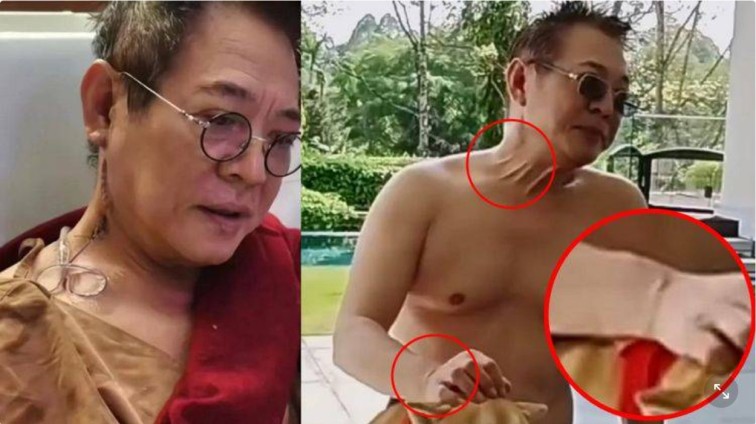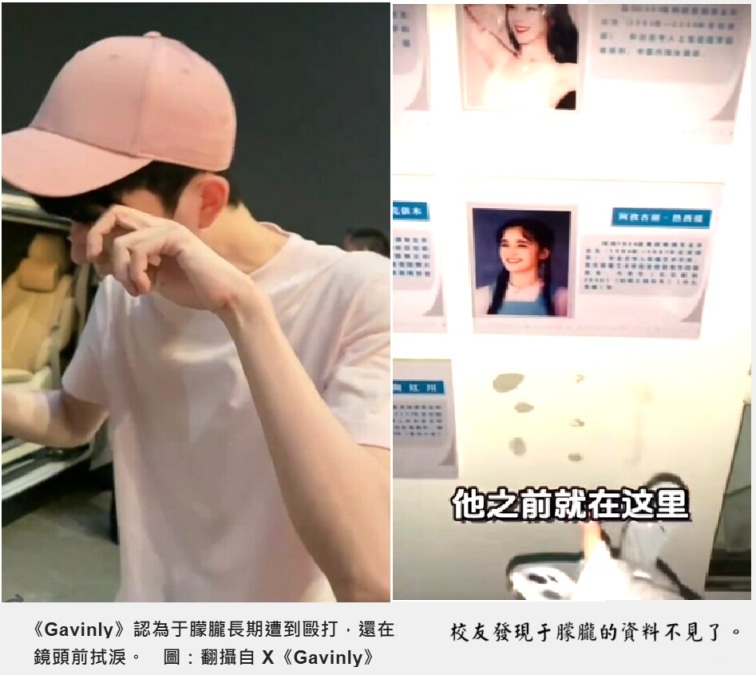On October 31 and November 1, Sanae Takaichi (高市早苗) shared photos and details of her conversations with Lin Xinyi (林信义) on the social media platform X. (Screenshot from the internet)
[People News] The recent 'beheading theory' proposed by Xue Jian, the Chinese Consul General in Osaka, has sent shockwaves through the international community, escalating tensions further. On November 12, the Chinese Communist Party's media entered the fray, hurling insults at Japanese Prime Minister Sanae Takaichi, calling her 'full of shit' and questioning, 'Has her head been kicked by a donkey?' This intense exchange of words between China and Japan threatens to deteriorate the already fragile Sino-Japanese relations, which had only recently been eased by Xi Jinping and Takaichi during a summit in South Korea.
On the same day, the social media account 'Yuyuantan Tian' under CCTV published an article titled 'Troublemaker Takaichi.' The article cleverly referred to Takaichi as a 'troublemaker.' It noted that the Japanese Prime Minister has been quite 'short-lived' in recent years, with four individuals serving six terms in just five years, stating, 'But someone as unwilling to work as Takaichi is the first.' The article also questioned how Takaichi could dare to assert, 'If there is an issue with Taiwan, there is an issue with Japan,' cursing, 'Has her head been kicked by a donkey?'
The article further accused Takaichi of 'rising to power through creating trouble,' alleging that she took on tasks that Shinzo Abe could not handle during his administration, stating, 'The dirty and difficult work that Abe couldn't do, Takaichi did,' and that she also voiced opinions that Abe could not express, accusing her of 'taking advantage and seeking personal gain.'
In conclusion, the article threatened in a shrew-like manner, stating: 'If she continues to speak so shamelessly and 'full of shit,' Takaichi will likely have to face the consequences!'
On November 7, Takashi Sanae addressed the National Assembly, stating that if Beijing were to take aggressive actions against Taiwan, it could be regarded as a "situation threatening Japan's survival." This implies that Tokyo might consider military action should conflict arise in the Taiwan Strait.
Late on November 8, Xue Jian, the Chinese Consul General in Osaka, quoted a column from Asahi Shimbun about Takashi Sanae's comments in a post on X (formerly Twitter). He stated, "If you dare to interfere, I will mercilessly chop off that dirty head. Have you made up your mind?"
Xue Jian's violent comments as a diplomat sparked public outrage in Japan, with many interpreting his words as a death threat against Prime Minister Takashi. Critics described his remarks as extremely malicious. The Japanese government responded by labelling the comments as "extremely inappropriate" and lodged a formal protest with Beijing.
In response, Beijing claimed that Xue Jian's post was made in a personal capacity, and he later deleted the post.
On November 9, Xue Jian shared several images of various types of Chinese military vessels and also promoted the opening ceremony of the 15th National Games of China, releasing various images and videos praising Xi Jinping.
On November 10, Chinese Foreign Ministry spokesperson Lin Jian expressed "strong dissatisfaction and strong protest" regarding Takashi's remarks during a press conference.
On the same day, political parties across Japan condemned Xue Jian's death threat, viewing it as an insult to Prime Minister Takashi Sanae and the Japanese people, and a serious blow to Japan-China relations. They urged the Japanese government to take strict measures, including declaring him an "unwelcome person" and expelling him.
On November 10, the ruling Liberal Democratic Party (LDP), along with the Ministry of Foreign Affairs and the Foreign Affairs Investigation Committee, passed a resolution condemning Xue Jian's post. The resolution stated that Xue Jian's comments not only insulted Prime Minister Kishi Sanae but also represented 'an insult to the nation of Japan and its people, and harmed Japan-China relations.'
Opposition parties, including Komeito, the Constitutional Democratic Party, and the Democratic Party for the People, also protested against Xue Jian's words and actions. Komeito representative Saito Tetsuo remarked, 'Such posts lack character and can be perceived as intimidation; such remarks are absolutely unacceptable for a diplomat.'
LDP policy chief Kobayashi Takayuki urged the government to expel Xue Jian if Beijing does not take steps to alleviate the situation. Main opposition party member Izumi Kenta also called for his immediate expulsion.
Although Kishi Sanae later indicated that she would refrain from making similar statements, Tokyo called for both sides to work towards easing tensions on November 12. However, the Chinese Communist Party's CCTV responded with a harsh article, further exacerbating the deterioration of Japan-China relations.
On the 12th, Chen Binhua, spokesperson for the Taiwan Affairs Office of the State Council of China, accused Kishi of 'grossly interfering in China's internal affairs,' which he claimed seriously violated the One China principle.
Japanese Foreign Minister Motegi Toshimitsu expressed regret over the recent controversy on November 13, describing Xue Jian's post as 'extremely inappropriate' and requesting Beijing to take action. 'We strongly demand that appropriate measures continue to be taken in the future to avoid impacting the overall direction of Japan-China relations.' He did not comment on whether Xue Jian would be designated as a 'persona non grata,' which would allow the host country to refuse his stay.
Radio France Internationale reported that analysts believe the controversy ignited by Xue Jian's comments has completely undermined the atmosphere of détente that Xi Jinping and Japanese Prime Minister Kishi Nobuo (高市早苗) sought to establish during their recent meeting in Busan. Additionally, the avoidance of Xue Jian's remarks by the spokesperson for the Ministry of Foreign Affairs of the People's Republic of China, coupled with the state media's aggressive attacks on the Japanese Prime Minister, suggests that Xue Jian's controversial statements have the support of Beijing.
Further analysis indicates that since Xi Jinping assumed power, he has pursued a provocative and hardline 'wolf warrior' diplomatic approach. The visit of former U.S. President Trump to Japan highlighted the close ties between the U.S. and Japan, prompting Xi Jinping to meet with Kishi Nobuo at the Korea summit. Now, following a thaw in U.S.-China relations, Beijing appears to be reverting to its previous behaviour, continuing its hardline stance despite being aware that Xue Jian's comments are inappropriate.
On November 13, Lin Jian, the spokesperson for the Ministry of Foreign Affairs of the People's Republic of China, reiterated, 'That was a personal statement by a diplomat stationed in Japan, made in response to dangerous remarks advocating military intervention in the Taiwan Strait,' and added, 'The Japanese side should not confuse right and wrong, but should reflect on its own erroneous words and actions.' Lin Jian's comments seem to indicate a protective stance towards Xue Jian. △











News magazine bootstrap themes!
I like this themes, fast loading and look profesional
Thank you Carlos!
You're welcome!
Please support me with give positive rating!
Yes Sure!